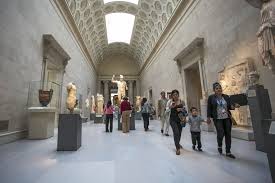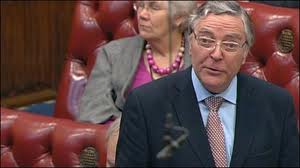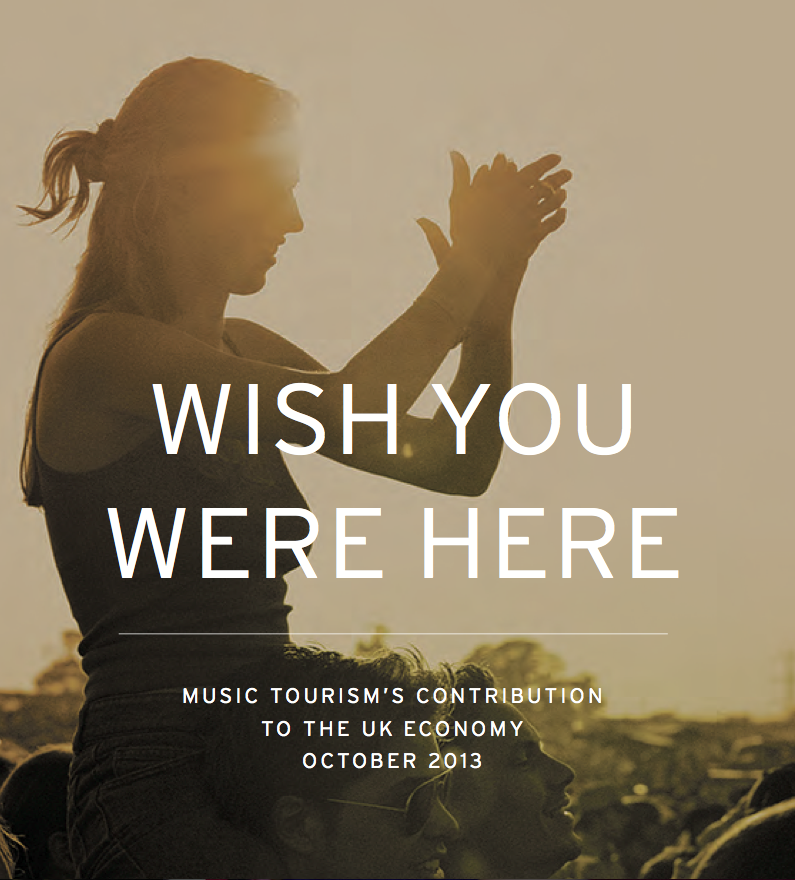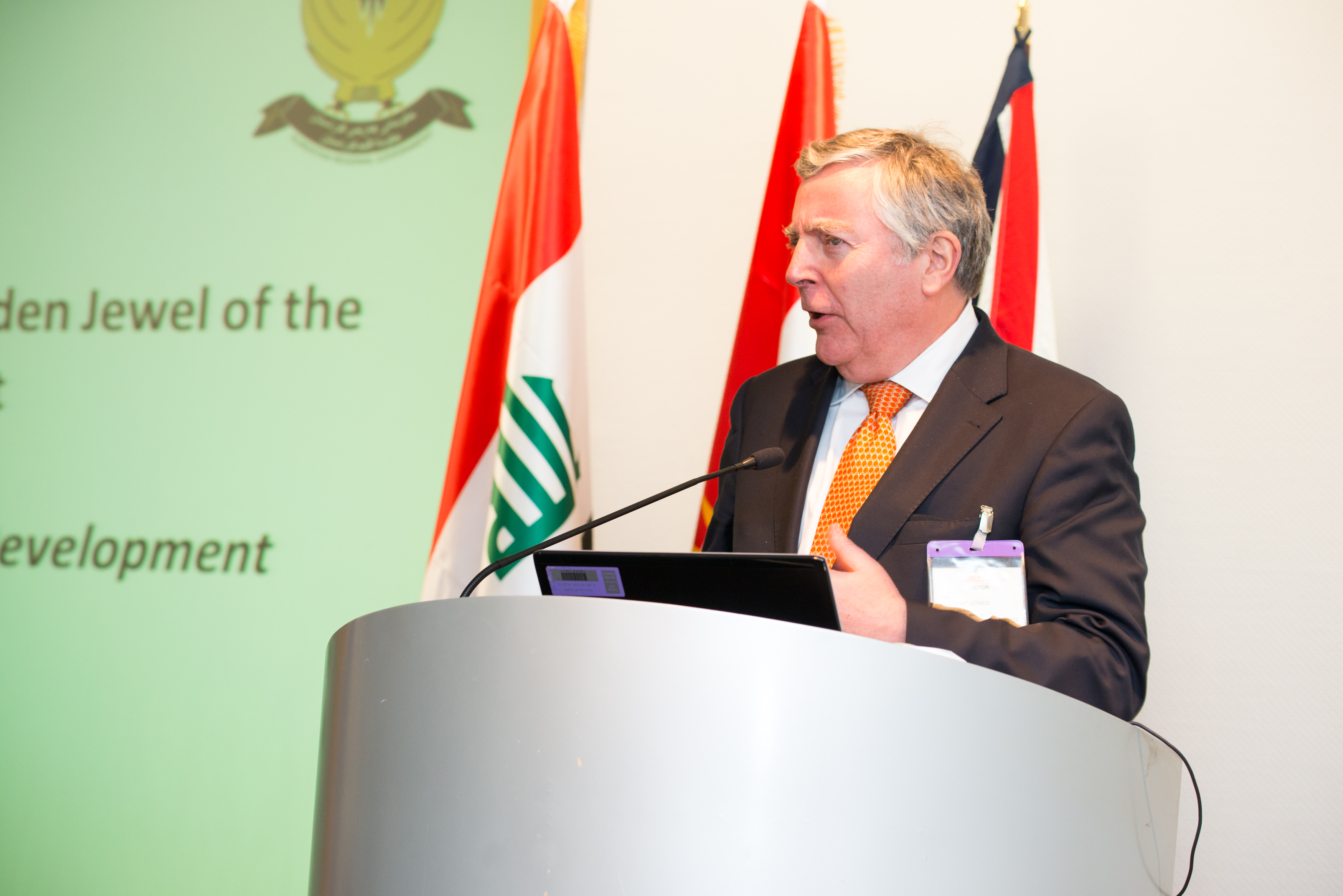Lord C-J Calls for Action on Museum Finance
In a speech in the House of Lords recently I highlighted the problems faced by museums and galleries and the need to go further than the recommendations made by Neil Mendoza in his report last December.
My Lords, we have heard an impressive range of speeches in this debate which have demonstrated the enthusiasm of this House for museums and galleries but also, I am sad to say, illustrating many of the severe problems that they face. I must congratulate that great heritage champion, the noble Lord, Lord Cormack, on instituting this timely debate. It is only too rare that we discuss this sector which, as we have heard, makes a great contribution to our culture, our creative economy, our tourism economy, to social well-being and the quality of our lives, and to our communities. I was taken by the description of the noble Lord, Lord Monks, of museums and galleries being a stimulant for creativity and innovation, and by what the noble Lord, Lord Rees, had to say about the ongoing impact on why people eventually do what they do; it is not purely down to the schools and universities they go to. Like him, I declare a strong interest not only as a regular visitor to national museums—only last night I was at the Science Museum for “Tomorrow’s World Live”, which was pretty exciting—but to university museums as the chair of the Queen Mary University of London Council. If any noble Lord has a slight taste for the macabre, it is certainly worth while going to see the astonishing Barts Pathology Museum in the West Smithfield campus.
As the National Museum Directors’ Council points out, eight out of the 10 most popular attractions in the UK are national museums, and 51.3% of UK adults visited a museum or gallery in 2012. But as the noble Lord, Lord Cormack, made clear, inevitably the context for today’s debate was provided by the Mendoza review published last November, entitled An Independent Review of Museums in England. Before that, we had the Government’s ambitious Culture White Paper and the Culture, Media and Sport Select Committee report in December 2016. At the time of the Select Committee’s report, the then Minister for Culture, Mr Matt Hancock MP, who is now the Secretary of State of course, said that he supported the aims of the White Paper and that he would continue putting its recommendations into practice, so I take some comfort from that.
The Select Committee and the Culture White Paper both emphasise the need for access, diversification and partnership working. I say “hear, hear!” to that. The principal recommendations set out in the Mendoza review were described succinctly by the noble Lord, Lord Kirkham, while the noble Viscount, Lord Eccles, was right to pick out a particular recommendation for a clearer museums role for DCMS. If that is not a veiled criticism, I do not know what is, and I strongly support what the noble Viscount had to say. Some good recommendations were made in the review, and I welcome the response made by Arts Council England. It states that over the period 2018 to 2022 it will invest £36.6 million per annum in museums, which is 9% of the total national portfolio spend. It has also committed that from 1 April 2018 it will open up its redesigned grants for the arts funding programme.
There are some important elements in terms of the response to the review, and I welcome the museums action plan recommended by Mendoza, which I understand will be delivered by Arts Council England and the Heritage Lottery Fund by September this year. It will also be facilitated by DCMS, so perhaps the department is beginning to become more engaged. However, given the financial problems that many museums face, this is no guarantee of survival and we need to do more. As the noble Earl, Lord Clancarty, pointed out, the bare fact is that the Museums Association has stated that despite recognising the severe funding difficulties being experienced by many museums—the Government’s own figures show that local authority funding for museums in England was 31% lower in 2016 than in 2010—the report fails to identify any new resources or capacity to improve the sustainability of the sector, although, as the noble, Lord Cormack, has pointed out, the sums involved are rather small.
"This is no guarantee of survival and we need to do more."
— Lord Clement-Jones
There are funding issues that need tackling. When we were in coalition, a four-year pilot of operational and financial flexibilities for national museums to assist their capacity to generate commercial and philanthropic revenue and to operate efficiently was set up. What has been the evaluation of that pilot scheme? Much mention has been made throughout the debate of the importance of the National Lottery, but one of its founding principles was that there should only be one National Lottery. This is not the situation today. There is the Health Lottery, which is one in all but name. This damages its ability to raise funds for good causes, such as museums. What do the Government plan to do about that?
As a number of noble Lords pointed out, including the noble Viscount, Lord Falkland, we need to increase the appetite for philanthropic giving. There is kudos involved, but matched funding from public funds acting as an inducement is additional to that. A crucial lesson has been learned on the importance of investing in the teaching of fundraising skills. The Creative Industries Federation has argued that we need to incentivise greater corporate giving and we should consider something like the Rouanet law in Brazil, which allows companies to offset donations to the cultural sector against the corporate tax bill. There are a number of aspects that the Select Committee asked the DDCMS to work on in VAT business rates, tax incentives and so on. My noble friend Lady Grender talked of creative enterprise zones. Those are of course important.
What is the Tourism Industry Council now doing relative to museums? Why are museums not represented on it anymore? Will the tourism sector deal agreed as part of the industrial strategy encompass museums? There are many other issues that I could raise relative to museums. I hope that the DDCMS gets into hyperactive mode.
Visas
For some time now I and my Lib Dem colleagues have been interrogating government on their approach to visitors and visas, principally as they apply to overseas students but also for tourists and business people who are such an important source of economic benefit to the UK.
It is particularly absurd that students are classified as immigrants when the vast majority are here for the duration of their courses only. We need to make sure that students are not included the government policy of reducing permanent migration or the migration figures
Here is my recent article for the House Magazine (7th November)
Our visa policy in the UK over the past few years seems to have been expressly designed to cause maximum damage to our economy and our reputation.
For example: Students? Let's make uk higher education unattractive for overseas students compared to the US, Canada and Australia and all but[c1] abolish the Post Study Work Route visa. No wonder student applications from many countries outside the EU have fallen away drastically.
Tourists? Let's make the UK an unattractive destination for high spending overseas visitors by making the UK visa more expensive and complicated to obtain than the single Schengen visa, obtainable for 26 other European destinations. No wonder Paris attracts an estimated five times more Chinese visitors than London. We appear to be foregoing something of the order of £ 1.2 bn in income by comparison.
Particularly as regards Chinese tourists and students, visa policy to date appears to have taken no account of the risks and rewards involved. The level of abuse by Chinese students for example has been minimal-after all Chinese post- Graduate students have excellent prospects in China. On the other hand over 100,000 Chinese students bring huge benefits to our higher education institutions and their host towns and cities- this could be as high as 4 or 5 billion per annum
Likewise Chinese tourists mainly visit Europe in groups and spend per head more than any other nationality, delivering some £300 million[c2] annually to the UK economy or £1,600 per head. Quite apart from the immediate benefits, today’s tourists are also often tomorrow’s business visitors and potential investors. Student alumni are a growing and important source of soft power for the UK and cultural bridge for British business.
Finally however it looks as though there is a change of heart in the offing for Chinese visitors.
The Chancellor's recent [c3] announcement in China ( the Home Secretary announced it both last December and in April) of a pilot scheme which should lead to a simplified process for group visas, through closer alignment with Schengen applications, is a welcome move. This would allow Chinese tourists to apply for a UK visa using the Schengen form through approved Chinese travel agents organising group tours.
We need to go further however both in process and promotion for both students and tourists as organisations such as Universities UK, London First and Walpole British Luxury have urged .
First we need to co-locate our visa application centres with selected Schengen countries – especially in respect of collection of biometrics data, soon to be introduced as a requirement by the rest of Europe.
Second The latest improvements need to be extended to the Free Independent Traveller category (FITs), which is a growing segment of the Chinese outbound tourism market.
Third we must make sure that all visa application forms can be completed in the Chinese language, not least as a symbolic gesture of welcome .
Fourth, as Australia did we must re-introduce a post study work route option for internships as the Australians have now done which would be hugely for the benefit of China UK trade.
Finally, although there are signs of a more user friendly approach since Visas & Immigration was spun out of the UK Border Agency earlier this year, we need to alter the perception that overseas students are not welcome in the UK. We need a change of rhetoric starting at the top. Inclusion of students in the net migration figures sends out all the wrong signals. We know well that students really are temporary migrants. The Home Office's own evidence shows that of those students who entered in 2006 only 1% had settled permanently by 2011. The sooner the Government sees sense and excludes students from the figures the better it will be for the health of our Higher Education Sector.
Here is my speech in the Lords in the 6th June Debate on Global Migration and Mobility
http://www.publications.parliament.uk/pa/ld201314/ldhansrd/text/130606-0003.htm#13060664000083
Here is some of my past activity on the subject:
25th April 2013
Lord Clement-Jones: To ask Her Majesty's Government whether they have assessed the economic impact on the United Kingdom tourism industry of new visa restrictions for visitors from Brazil.
See the reply and debate here: http://www.publications.parliament.uk/pa/ld201213/ldhansrd/text/130425-0001.htm
25 November 2011
Lord Clement-Jones what evaluation they have made of the impact of the new student visa rules on the intake of overseas students in United Kingdom universities for the academic year 2011-12.
see the reply and debate here:
http://www.publications.parliament.uk/pa/ld201011/ldhansrd/text/111115-0001.htm
16th February 2011
Lord Clement-Jones: To ask Her Majesty's Government when they expect to make a decision on the criteria for granting tier 1 post-study work visas, following the recent consultation paper.
http://www.publications.parliament.uk/pa/ld201011/ldhansrd/text/110216-0001.htm
There have been full length debates on visas in which I have participated:
Visiting Performers:10th March 2011
http://www.publications.parliament.uk/pa/ld201011/ldhansrd/text/110310-0002.htm
Student Visas: 7th September 2011
http://www.theyworkforyou.com/lords/?gid=2011-09-07a.352.0
I signed an open letter with other business people in the Sunday Times in July last year:
http://www.cihe.co.uk/foreign-students-key-to-uk-business/
Here's a piece I wrote last year year when the new rules for overseas students came in:
http://www.westminster-briefing.com/news-detail/newsarticle/student-visa-system-is-self-defeating/
UK Hospitality and Tourism
One of my key concerns is Government policy towards the Hospitality and Tourism Industry which with the right policies and government support could, it is estimated, deliver 300,000 jobs in the UK by 2020. I recently took part in a British Hospitality Association Summit Panel when I advocated a much closer relationship between the industry and Government through the setting up of a Hospitality and Tourism Council comprised of BIS and DCMS Ministers, Visit Britain and senior representatives of the private sector so that a national strategy tackling many issues such as visas, APD, VAT, planning etc can be developed.
The BHA say:
"The immediate and direct follow up to the Summit has been very strong. We've held meetings with the UK Minister of Immigration and the President of CITS to advance the easing of visas for Chinese visitors. We've revitalised the BHA Adopt your MP campaign with even more members signing up to lobby their local MPs to influence change locally as well as in Westminster. We've fueled the industry's Cut Tourism VAT campaign and achieved continued press coverage to amplify our industry's calls to action. "
UK Music launches excellent new report on Music Tourism
UK Music have published an excellent report on Music tourism: Wish you Were Here
This follows their groundbreaking last report in 2011, Destination: Music—the Contribution of Music Festivals & Major Concerts to Tourism in the Uk
The main messages are:
We’ve uncovered a hidden gem. Music tourism has never been properly studied before.
Groundbreaking research. Unprecedented access to data – to give us the most comprehensive picture ever of live music and tourism.
Significance of music tourism to economy reaching highest levels – from Prime Minister to House of Lords debate to new partnerships with tourism authorities.
They are calling for an overarching music tourism strategy to maximise potential.
The Main Statistics are:
- UK Music counted 6.5 million music tourists in 2012.
- On average, 41% of the population at live music events is comprised of music tourists.
- Music tourism is generating £2.2 billion in spending overall.
- £1.3 billion of that is spent directly by music tourists themselves,
- Their presence stimulates a further £914 million in spending further down the supply chain.
- Music tourism is sustaining 24,251 jobs overall.
- 16,135 of those jobs exist as a direct result of music tourism
- a further 8,115 jobs were created further down the supply chain as a result of music tourism
- These are “full-time equivalent” jobs – so if there are two part-time jobs of 20 hours a week, or 4 seasonal jobs each lasting 3 months, we count them as one FT job.
- Music tourism contributes nearly a billion pounds (£934 million) to the nation’s wealth as measured by GDP
- 544 million as a direct result of music tourism
- A further £390 million as a result of economic activity further down the supply chain.
- Overseas music tourists comprised just 6% of the total music tourism population, but they accounted for 20% of total spending by music tourists. They’re like gold dust. Per capita, they each spend nearly a grand (£910) in the UK when they come here to attend music festivals, and nearly £400 (£396) when here to attend a gig. This includes spending at the live music event itself as well as what they spend over the course of their stay in the UK.
This is a great Report. It identifies the opportunities extremely well .
What we now need, as I said in Lord Storey’s debate in June, is for the Government to team up with VisitBritain,the Arts Council, the British Council the music industry, the tourism and hospitality industries and others to identify the “real levers and barriers” to growing music tourism at national level, in many cases red tape and do the necessary. We need a properly joined-up strategy, particularly in terms of reducing regulation
Lord C-J promotes Kurdistan/UK tourism
This is a speech I gave at a recent Iraqi-Kurdistan Tourism Infrastructure Development Conference at the BIS Conference Centre-a Reflection on 10 years of development.
It's a great pleasure to be involved with an event promoting Iraqi Kurdistan.I’ve been looking back over developments in the last 10 years now since I first went to the Iraqi Kurdistan region in 2004 and its incredible what progress political, economic and social has been made since then .
As a member of of the All Party Parliamentary for Iraqi Kurdistan it's been a pleasure promoting relationships between the Region and the UK.
I made a speech about my visit in the House of Lords shortly after I got back and it is instructive to contrast then and now:
Then I was driven through South Eastern Turkey having flown to Dyarbakir and it was was a relief to arrive at the border with Iraq after so many hours. Now there is a major new British designed Hawler (Erbil) International Airport with direct flights from all over Europe
Then I complained about the attitude displayed by Turkish soldiers towards Iraqi Kurds at the border with border guards describing my literature about agriculture and education as a “problem” because it mentioned the words “Iraqi Kurdistan” .
Now there are excellent political relationship too between Presidents and PM Barzani and President Gul and PM Erdogan. The PKK issue in Turkey is beginning to be resolved too with a cease fire declared by their leader Abdullah Öcalan and a peace settlement in sight.
Trade between Turkey and Kurdistan flows freely. Turkish companies are the largest direct inward investor in the Region . Turkey is becoming directly involved in oil and gas exploration in the region
Now thanks to the freetrade approach adopted by the KRG there is huge investment by Turkey itself growing at 6-8%. Kurdistan’s growth rate is reported at 12%. There is a growing consumer economy.
Erbil itself and the other major cities are transformed . New hotels and shopping malls have sprung up in the last 10 years.
There are major Oil and gas developments. There has been significant exploration and finds from a number of medium sized companies and now oil majors such as ExxonMobil and Chevron.
10 years ago I noted the progress that had been made in providing universal education at primary and secondary levels in Kurdistan even in the smallest village and in adult education too. Now Higher Education is flourishing .Education links with Britain are growing stronger by the year symbolized by recent visit from higher education minister David Willets. Recently 21 universities visited to explore ties.
In those days there were two separate government administrations . One run by the KDP and one by the PUK. Now and for some time there is a common democratically elected parliament with regular terms of office for government following elections and the Prime Ministership has rotated between the parties on two occasions. . The government of different parties and faiths continues to be a model of pluralism.
Now we see the maturing of parliamentary opposition too.
I talked then about the absolute need for a British consulate in Erbil. Now there is vastly better representation of British interests in Kurdistan. We take the Consulate General for granted but still await proper premises in downtown Erbil and still have major UK visa frustrations !
Then the British were conspicuous by their absence in helping with the economic development of Kurdistan and building commercial ties. Now particularly in the last three years British companies have begun to get stuck in and we have seen many British companies represented at the major trade fairs. In 2011 at the Erbil Trade Fair there were 89 delegates, including 20 exhibitors, the largest UK trade delegation to the region to date, in fact the largest non Ministerial business delegation to anywhere!
There are something which were true then and I am glad to say have endured throughout the ten years
Then I said that security in the Region in contrast to the rest of Iraq thanks to the continuing presence of the peshmerga was excellent and this fact should be recognised in FCO advice. This has continued to be the case - and the FCO stresses this fact in travel and trade advice. Iraqi-Kurdistan really is an island in a sea of instability.
Then I said they had built the makings of a religiously tolerant pluralistic democratic society. It was notable that many of the Chaldean Christians retreating from the bombs in Mosul were taking refuge in Iraqi Kurdistan. Now there is a wonderful diversity of culture even more than ever in Kurdistan with a vibrant Christian quarter in Erbil in particular. Now of course the Region is absorbing a whole new set of refugees from Syria. All these elements lay the grounds for a potentially hugely successful tourism industry in Kurdistan which could become not just regional but international in nature.
I have a friend in Kurdistan who is passionate about the preservation of its cultural heritage and get regular updates on developments!
Bayan has mentioned some amazing sites. I've only been to a few of them.
Some cities in Kurdistan go back 8000 years to the dawn of civilisation like the UNESCO protected citadel of Erbil.
There is the Assyrian aqueduct -the largest in the world built by Sennecherib in 700 BCE and the site of Alexander the Great's famous battle against Darius III the Persian Ruler at Gaugamela IN 331 BCE.
There are the extraordinary Yazidi temples at Lalish
There is so much to see.
Now it even appears that the Hanging Gardens were not in Babylon but in Northern Iraq!
Allied to the history -and we must never forget that part of that history are some of the recent tragedies during the Anfall under Saddam Husedsein's rule and the genocide at Halabja in particular, now recognized as such by Parliament -there-is Kurdistan's extraordinary scenery -the spectacular Zagros mountains and dramatic waterfalls.
The mountains will be the friends of Kurdish tourism I hope!
Every year the tourism infrastructure in terms of transport links and much better quality hotels and hospitality offer-and shopping!- has improved.
All this will I am sure lead to a huge growth in tourism in Kurdistan. I am a great believer in the power of tourism to generate economic growth and employment and spend time urging government to do more here to release the potential.
I know the KRG are very aware of the potential importance of tourism to Kurdistan and I am absolutely delighted to help open today's proceedings and hand over to the Minister who is going to give us all the information we need to encourage investment in tourism and hospitality!





